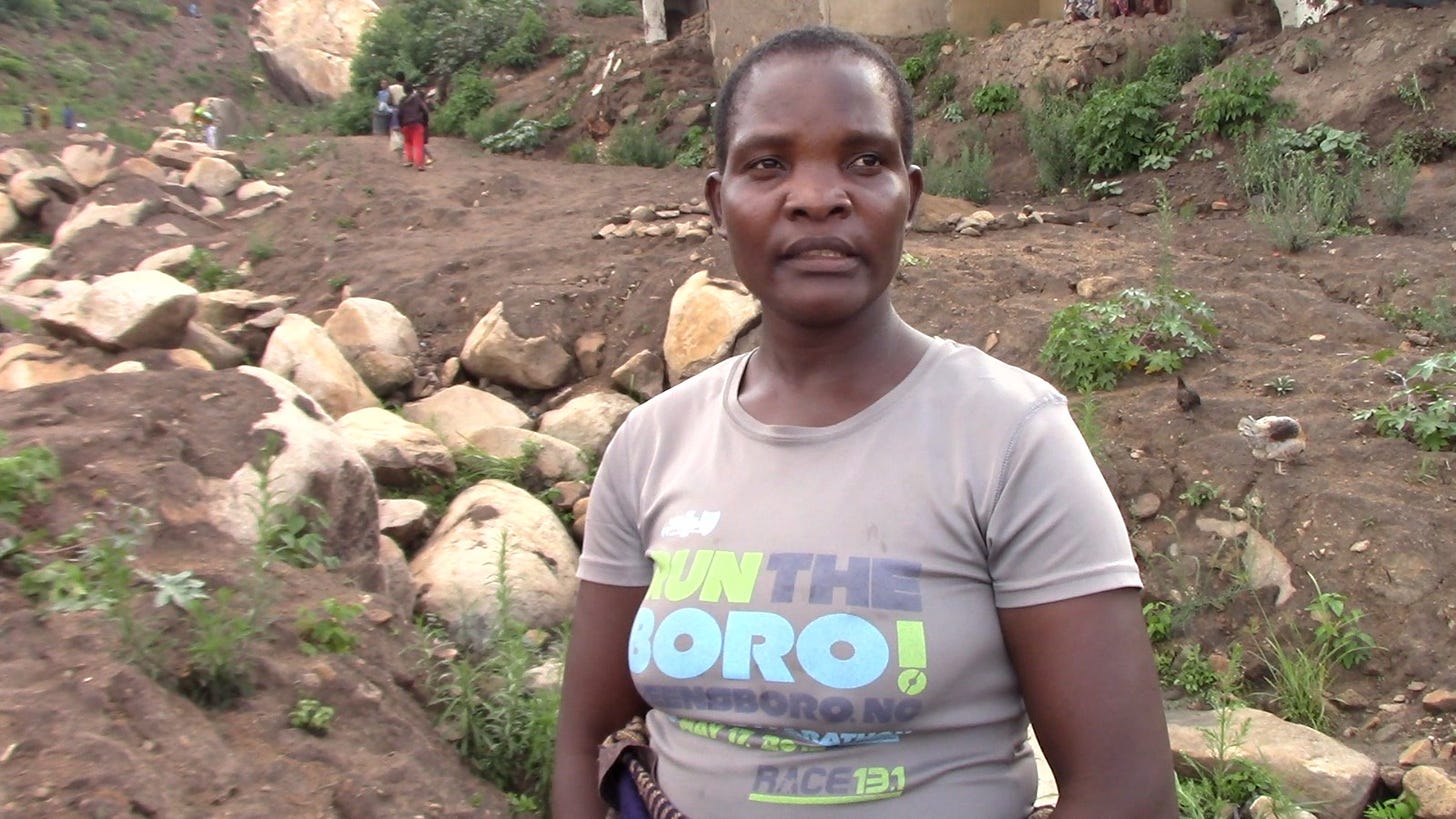Cyclone Freddy Plunges Families Into Hardship
For seventeen years, the single mother of four has lived at this place but the March 2023 floods were the worst to hit the area.
PHALOMBE, Malawi- Cyclone Freddy not only left a trail of devastation in the southern part of Malawi, but it also plunged families like that of Esime Gangisa into economic hardship, writes Chimwemwe Padatha.
Esime, 38, is among communities on the steep slopes of Soche Mountain and now recalls the loss of homes, businesses and loved ones.
For seventeen years, the single mother of four has lived at this place but the March 2023 floods were the worst to hit the area.
Over 500 people died and hundreds of others were displaced as a result of the flooding waters that could be described as the country's worst disaster.
"I used to sell vegetables but my business was heavily affected by the floods, we lost all our belongings," said Esime.
Noting the struggle to recover, the plight of the flood victims is now left in the hands of some good Samaritans.
One of such individuals is Tamara Nyahoda, founder of Better World Charitable Organization (BEWOCO). Through her organization, Tamara has reached out to 40 women with startup capital to help small businesses build climate change resilience in parts of Phalombe and Blantyre districts.
Apart from the startups, she provides assistance to school-going children in an initiative called “Back to School”.
"After the mudslides, I give them startup capital of between MK30,000 to Mk150,000 for their business, I also assist school-going children with uniforms and payment of school fees for some of the kids," she said.
A 2022 World Bank Report indicated that climate change will make it harder for Malawi to achieve its ambitious development goals, the MW2063. It says “Climate change could reduce the country’s Gross Domestic Product (GDP) by 3 to 9 percent by 2030, 6 to 20 percent by 2040 and 8 to 16 percent by 2050.”
Economist Professor Betchani Tchereni admits that social economic impacts of climate change are inevitable to agrarian economies like Malawi.
Said Tchereni, "We have seen that the trends of rains have changed and therefore economies suffer, climate change is a very significant negative factor to any agrarian economy such as the economy of Malawi."
On 30th November, world leaders operationalized the loss and damaged fund at COP28 to cushion countries like Malawi from climate-induced effects.
Environmentalist Mathews Malata welcomes the operationalization of the fund as a milestone towards protecting low-income countries from the economic fallout of climate change.



